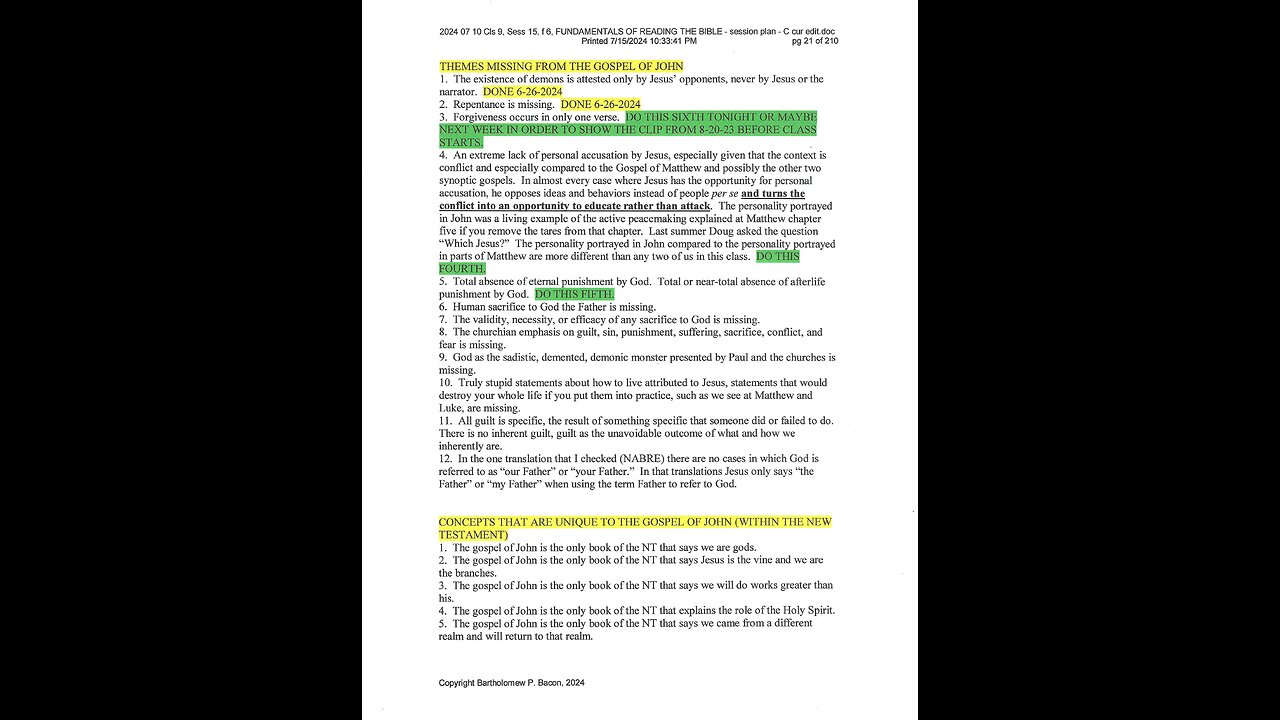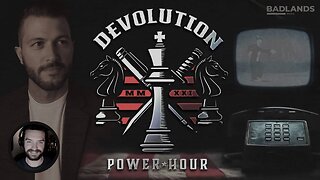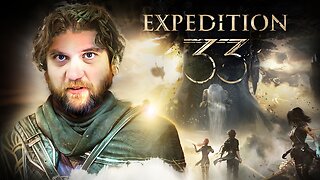Premium Only Content

52nd session. 7-10-24. FUNDAMENTALS OF READING THE BIBLE
NOTES ON THE 7-10-24 CLASS
LAST EDITED 7-14-24 0139 HST
>> There was one long audio failure, from 1:52:22 to 1:53:42. When watching the video or listening to the audio you can fast forward across those 80 seconds. There were also a handful of brief audio failures during the class, including one during the opening prayer. Aside from the prayer, words that were lost are noted below. I plan to switch to a newer computer in future classes to prevent this from happening again.
>> This class was a continuation of the overview of the Gospel of John that we started at the 6-5-2024 class.
CORRECTIONS TO MY STATEMENTS AT THE 7-10-24 CLASS
LAST EDITED 7-15-24 1821 HST
>> At 6:42 to 6:54 I was playing a clip from last summer in which I said “In the New Testament we’re going to find many cases … in which Jesus is referred to as ‘a son of God.’” From 7:07 to 7:16, still playing the clip from last summer, I said “For the Messiah to be called ‘a son of God’ or ‘the son of God’ would have been expected.” My extended travel during that time period must have temporarily degraded my brain. I can not think of any cases of “a son of God” in the New Testament and a search of seven major translations found no cases of “a son of God” in the New Testament. The phrase “the son of God” is found numerous times, with cases occurring in all four gospels, Acts, several epistles, and Revelation.
>> Between 36:52 and 37:00 I said that biblestudytools.com was wrong at its count of monogenes in Luke, that it says there are three but in fact there are only two. I was wrong, due to thinking of English “only son” instead of Greek “monogenes.” In fact there are two cases of monogenes in Luke that are not translated into English as “only son.” The website was right; there are three occurrences of monogenes in Luke. This same error cropped up again later in class. I plan to look at the two verses I missed in the next class. See below at correction to 1:25:20.
>> At 37:42 to 37:47 I said “It’s not showing that here.” In fact the website was showing the list of verses near the top, above the actual verses shown one by one.
>> At 1:03:51 to 1:04:11 I said “Based on what we saw, apparently the Inquisition condemned him not only because of his astronomical views, but primarily because of his religious views, including reincarnation and universal salvation.” It is the case that it appears that the Inquisition condemned him partly for his religious views, but it was not the case that I showed that in class. The part of the Cosmos episode that showed the reason for his conviction by the Inquisition was between the two clips that I did show. Go to time index 24:25 to 24:50 of episode 1 (“Standing Up in the Milky Way”) of Cosmos: A Spacetime Odyssey to see that part. Also, at the Wikipedia page we saw, although I did not draw attention to it, we read “Some historians are of the opinion his heresy trial was not a response to his cosmological views but rather a response to his religious and afterlife views, while others find the main reason for Bruno's death was indeed his cosmological views.”
>> At 1:08:15 to 1:08:30 I was mistaken in referring to North America with regards to Columbus. In fact Columbus reached some of the Caribbean islands, Central America, and South America, but not North America.
>> At 1:09:00 to 1:09:03 “surrounded by water” should have been “surrounded by water at the same level and above surrounded by the bowl of the heavens that contained the heavenly bodies that revolve around the Earth.”
>> At 1:25:20 to 1:25:32 and again at 1:28:08 to 1:28:18 I repeated the error that there are (only) seven cases in which the Greek word monogenes occurs in the New Testament. In fact there are nine. The two I missed are Luke 8:42 and Luke 9:38. I plan to look at those two verses in the next class.
>> At 1:26:44 to 1:26:49 I said that monogenes “means either only son or only daughter.” Whether monogenes would apply to an adopted child is unclear to me. Whether monogenes could be used with the Greek word for son or daughter to mean that the parent has only one son but also has one of more daughters, and vice versa, is unclear. The correct statement may be that monogenes means either “only one biological child,” or “only one biological son,” or only one biological daughter.” Or the correct statement may be that monogenes can have a range of different meanings to different writers and in different contexts.
>> At 1:37:18 to 1:37:21, “nineteen” should have been “eighteen.”
>> At 1:37:51 to 1:37:56 “son definitely qualifies begotten” should have been “son definitely modifies begotten.”
>> At 1:40:33 to 1:40:43 there was an audio failure. On the recording what is heard is “he only ever uses the terms … the Father in that gospel.” What I said was “he only ever uses the terms my Father and the Father in that gospel.”
>> At 1:42:28 to 1:42:38 “alter a lot of the rest of the Bible” should have been “alter our understanding of a lot of the rest of the Bible.”
>> At 1:45:47 “which is the only book that” should have been “which is written by apparently the only author who.”
>> At 1:50:05 to 1:50:10 there was an audio failure. What I said was “which is capitalized.”
>> At 2:03:37 to 2:04:10 my attempt to do mental math in the midst of a class was not entirely successful. At three to five chapters per day, with the shortest gospel having sixteen chapters and the longest gospel having twenty-eight chapters, the time span would be a minimum of four days and a maximum of ten days.
ADDITIONAL REFERENCES AND RESOURCES FOR THE 7-10-24 CLASS
LAST EDITED 7-14-24 1918 HST
>> At 18:15 to 18:39 I said “This comes to us from the Greek word monogenes. … In English monogenes comes to us sometimes as “only son” and sometimes as “only begotten son.” A search of “all English translations” of John 1:14 shows twenty-eight cases in which monogenes is translated into English as “only son” and four cases in which it is translated into English as “only begotten son.” In that same verse, there are thirteen translations in which monogenes is rendered as “only begotten” and six in which it is rendered “one and only son.” At Luke 9:38 there are forty-eight English translations in which monogenes is rendered “only child.”
>> At 29:50 to 30:00 I referred to the creeds found in The Book of Common Prayer of the Episcopal Church. In the Episcopal version, the Nicene Creed reads “We believe in one God, the Father, the Almighty, … We believe in one Lord, Jesus Christ, the only Son of God, eternally begotten of the Father, … begotten, not made …” The Episcopal version of the Apostles Creed has no content similar to the last three words of the Nicene Creed shown here. (source: https://www.episcopalchurch.org/what-we-believe/creeds/)
>> At 51:59 to 1:02:18 the episode of Cosmos: A Spacetime Odyssey that I showed was the first episode, “Standing Up in the Milky Way.”
>> At 57:11 to 57:19 what I said was totally lost due to audio failure. It was “I think what we’re seeing there is Bruno being expelled from his monastery.”
>> For 1:07:50 to 1:08:14. “Nicolaus Copernicus (19 February 1473 – 24 May 1543) was a Renaissance polymath, active as a mathematician, astronomer, and Catholic canon, who formulated a model of the universe that placed the Sun rather than Earth at its center. … The publication of Copernicus's model in his book De revolutionibus orbium coelestium (On the Revolutions of the Celestial Spheres), just before his death in 1543, was a major event in the history of science, triggering the Copernican Revolution and making a pioneering contribution to the Scientific Revolution.” (source: https://en.wikipedia.org/wiki/Nicolaus_Copernicus)
>> For 1:08:15 to 1:08:30. “Between 1492 and 1504, Columbus completed four round-trip voyages between Spain and the Americas.” (from https://en.wikipedia.org/wiki/Christopher_Columbus)
>> For 1:08:30 to 1:08:36. “The Magellan expedition … was a 16th-century Spanish expedition planned and led by Portuguese explorer Ferdinand Magellan. … The expedition departed Spain in 1519 and returned there in 1522 led by Spanish navigator Juan Sebastián Elcano, who crossed the Indian Ocean after Magellan's death in the Philippines. … the nearly three-year voyage achieved the first circumnavigation of Earth in history.” (from https://en.wikipedia.org/wiki/Magellan_expedition)
>> Also for 1:08:30 to 1:08:36. “Francis Drake's circumnavigation, also known as Drake's Raiding Expedition, was an important historical maritime event that took place between 15 December 1577 and 26 September 1580. … Drake arrived back in England … with … the distinction of being the second man to lead a circumnavigation of the globe with a ship intact, and the first Englishman to complete a circumnavigation.” (from: https://en.wikipedia.org/wiki/Francis_Drake%27s_circumnavigation)
-
 16:23
16:23
GritsGG
14 hours agoWorld Record Call of Duty Win Streak Attempting!
7.49K1 -
 2:02:54
2:02:54
Side Scrollers Podcast
18 hours agoJOEY SWOLL/HULK HOGAN CONTROVERSY + ONLINE SAFETY ACT + MORE | SIDE SCROLLERS
32K2 -
 1:05:44
1:05:44
Omar Elattar
9 months agoThe Digital Real Estate Expert: You're Being Lied To About Making Money Online!
9.11K -
 10:53
10:53
Nikko Ortiz
2 days agoWORST Clips On The Internet
91.1K28 -
 3:42:38
3:42:38
FreshandFit
13 hours agoREAL R*pe Victim Exposes Shannon Sharpe Accuser As Liar!
76.4K84 -
 2:18:29
2:18:29
Badlands Media
15 hours agoDevolution Power Hour Ep. 376: Optics, Explosions & the War for the Narrative
150K43 -
 37:46
37:46
Stephen Gardner
13 hours ago🔥Trump NEVER expected THIS WIN as Schumer has EPIC MELTDOWN!
49.1K34 -
 2:02:41
2:02:41
Inverted World Live
9 hours agoNASA Engineer Says Trillions of Shape-Shifting, Cloaked Devices are Hidden on Earth| Ep. 83
44K11 -
 3:12:37
3:12:37
TimcastIRL
10 hours agoGOP Councilman DOUSED IN GAS, Set ON FIRE In Virginia, Suspect In Custody | Timcast IRL
256K92 -
 2:32:23
2:32:23
The Quartering
9 hours agoOn To The Big Bosses! Act 2 Of Expedition 33
65.4K6